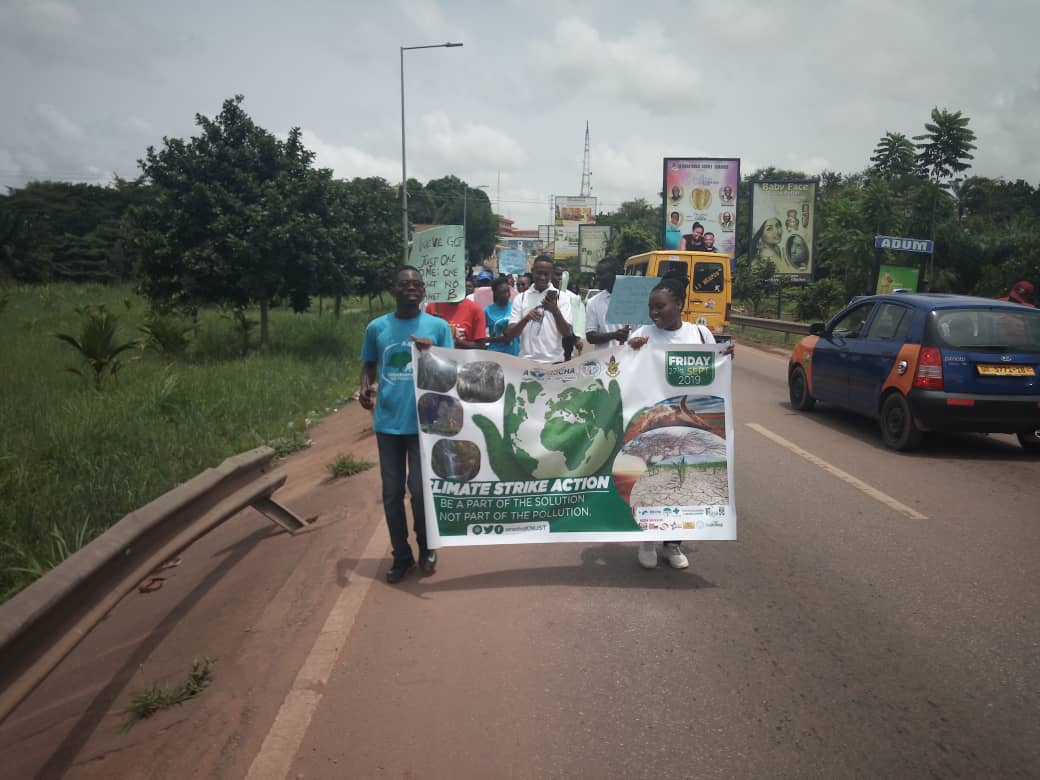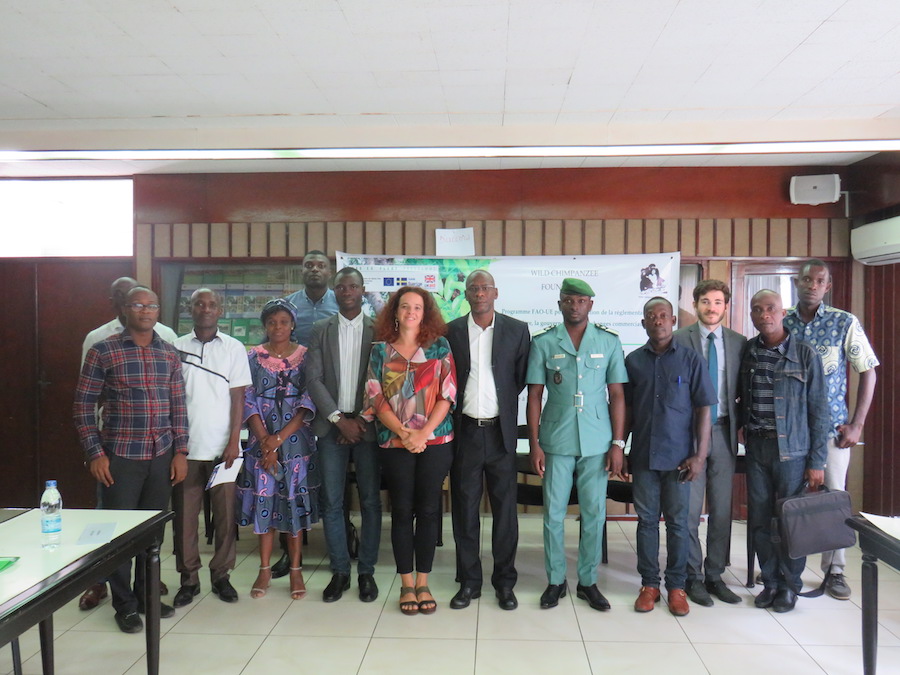
By Kofi Adu Domfeh
Young people in the Ashanti Region of Ghana are engaging political leaders and decision makers to take immediate and sustained action against human-caused climate change.
United in recognizing that the science of climate change is unequivocal, the youth, mobilized by A Rocha Ghana, joined in the global climate strike to draw the attention of leaders and the citizenry on the need for all to respond to the call for climate action.
The youth marched through some principal streets of Kumasi to dram home the reality that climate change threatens the local and national economy, national security, public health and safety.
“Some communities in the Ashanti Region are already experiencing its impacts. Our rural farmers are crying over erratic rainfall patterns, city dwellers are shouting over strong heat waves, and there is always flooding at some major parts of the City when it rains. Children, youth, women, low-income and minority groups are disproportionately affected,” said the concerned youth.
Inspired by their faith, the young activists drew the attention of the Kumasi Mayor to the fact that Climate change is the single biggest challenge to ending poverty and ensuring the safety and security of future generations; and that the impact of climate change is most severe for children, youth, women and the underprivileged living in extreme poverty.
“It is still within our power to avoid the worst impacts of climate change if all our leaders act urgently for the common good of the people,” said the youth in a petition to the Mayor of Kumasi. “At this crucial juncture in human history, the Children, youth, women and the underprivileged look to you and your team to pick up the mantle of leadership: to take steps to strengthen, not weaken, this region’s efforts to tackle this crisis”.
Addressing the recent UN General Assembly, President Akufo-Addo, noted that “nature has been brutal this year in demonstrating to us that, our climate is changing, and we are probably pushing our world to destruction”.
The President further indicated that, scientists have spoken on the realities of climate change; and it is time to direct our energies to what we can and should do to counteract the danger, and stop the unnecessary arguments.
With the eyes of children, youth, women, the underprivileged and unborn generations, the concerned youth presented a five-point petition to the Mayor of Kumasi to help address the climate crisis:
1. Bring back the glory of the once touted “Garden City” of Ghana, West Africa and Africa. Ensure that, our green public spaces are protected, re-greened and replanted. All our water ways and lands that are to be protected should not be given to the rich for their huge mansions to the detriment of the poor who suffer during flooding and disease outbreak.
2. Make Ashanti Region a clean energy leader in Ghana and beyond. The vast majority of the people ultimately support renewable energy use and deployment. Embrace the enormous economic opportunities of transitioning to an energy-efficient, low-carbon society. Endeavour to expand democratized clean energy and boost the Garden City’s competitiveness in Ghana and beyond. Remember that the new technologies in energy can offer the youth jobs.
3. Reduce carbon pollution and our dependence on fossil fuels. Ensure that, all sectors work efficiently by integrating climate change actions into their programs. Assure us and ensure that the policies helping to cut greenhouse gas emissions, curb air and water pollution, and accelerate clean energy growth, innovation, and jobs – will stay in place and will be implemented to the latter. Take off polluting and road unworthy cars from our roads. Halt bushfires and illegal logging activities in our moist semi-deciduous ecosystems.
4. Enhance Ashanti region’s climate preparedness and resilience. In the past years alone, floods, droughts, and wildfires have caused the region millions of Ghana Cedis. As climate change continues to increase the frequency and severity of these extreme events, so too grows the burden on all taxpayers to pay for disaster relief and recovery. Help protect and strengthen our communities, economy, and natural resources by investing in modern, climate-resilient energy, transport, building, and water infrastructure.
5. Protect scientific integrity in policymaking. Ensure that there is scientific transparency and accountability without any political bias. Uphold these standards by appointing scientific advisors, agency leaders who respect and rely on science-based decision-making.
The Mayor of Kumasi, Osei Assibey Antwi, commended the group for their action and reiterated the assembly’s commitment to bring back the glory of the once touted Garden City of Ghana.
“You have the support of the majority of companies, religious leaders, scientists, law enforcement agencies, and citizens to respond to the threats posed by climate change by reducing carbon pollution and expanding clean energy,” said the youth.












